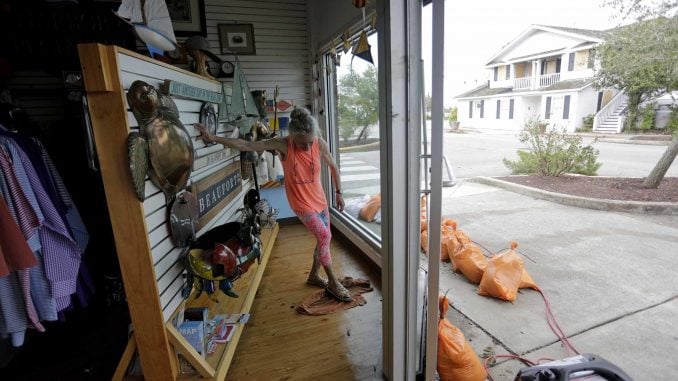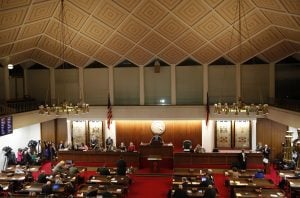
RALEIGH — Both chambers of the North Carolina General Assembly returned to Raleigh on Tuesday for a special session to address issues in the aftermath of Hurricane Florence. The two bills had support from both parties in the legislature as well as from the governor.

Senate Bill 2, “School calendar & pay/Hurricane Florence,” focused on addressing the disruptions caused by the storm to the state’s school systems. House Bill 4, “Hurricane Florence Emergency Response Act,” addressed a broader array of areas affected by the hurricane.
S.B. 2 was presented in a joint appropriations committee by New Hanover County Sen. Michael Lee. Lee described the devastation that Florence caused in his home county, where hard-hit Wilmington is located. He described how his neighbors had to wait for hours in gas lines only to discover there was none left and had to walk empty aisles at grocery stores before returning to homes that didn’t have power often for weeks.
“This was not a normal hurricane,” Lee said. “I’ve had some people say, ‘Wow, you’re lucky this was only a Category 1.’ Hurricanes usually last a day. They don’t go 2 miles an hour. They don’t last for three straight days. It’s like we had three hurricanes a day for three days.”
North Carolina superintendent of public instruction Mark Johnson told the committee that 1.2 million students were affected and more than 100,000 were still not in school.
“There are schools that have not reopened, and there are others that will never reopen,” House Education Chairman Craig Horn said.
The bill allowed flexibility for local education agencies (LEAs) to waive as many as 20 days of school if they are in a federally declared disaster area. The bill also provided pay for teachers and other school personnel, both permanent and contract employees, so they would continue to receive paychecks even on canceled school days. With many families’ livelihoods destroyed, legislators said this was the only income many of these families would have to rely on.
H.B. 4 gave the same areas of the state flexibility when it comes to the upcoming November midterms. They are allowed to offer more days of voter registration and can move one-stop voting locations if a unanimous vote of the local elections board approves. In one of the only partisan divides of the day, Democrats tried to amend that provision from “unanimous” approval to “majority” approval but were not able to pass their amendment.
The bill also created a Hurricane Florence Disaster Recovery Fund to be administered by the Office of State Budget and Management in order to pay for things like debris cleanup and the effort to contain out-of-control mosquito populations. They put an initial funding of $56.6 million into the fund.
The state budget director, Charles Perusse, an appointee of Democratic Gov. Roy Cooper, made clear that the executive branch wanted to cooperate and approved of the creation of this fund.
Perusse told the joint committee that Cooper had charged him with cooperating with legislative leaders to create a “bold, comprehensive, data-driven recovery plan together.” He also said while hurricane recovery plans typically take 2-3 months, this one looked on track to be completed in 2-3 weeks.



